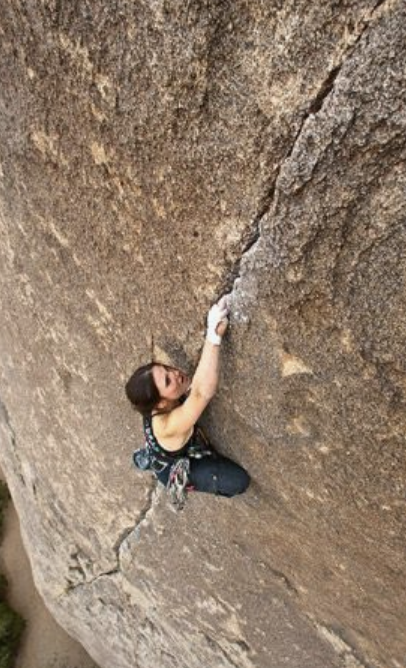 Thursday night this week I dreamed I was in a shop in Europe where I bought a calendar with pictures of lavender on every month – for the next 34 years! "I'll be 87 when it runs out," I thought, "I might not live to flip every page.” "Yes, but what do you want to write on the pages?” the dream asked the dreamer, who was me. “What do you want to write in the 12,240 little boxes on the 408 pages of your 34-year calendar?” Because the calendar isn't a dream at all. It's real. However many pages it actually contains I don't know. But I know it's reality, yours and mine. Because whether we planned for them or not we are spending out those boxes and those pages – here and now, a day at a time. Dreams are one of the still-small-voice ways God speaks to me. Sometimes I can hear the sound of it – though the sound of it isn't like any other sound, as if God wants me to pay attention but doesn't want to be recognized too easily. Sometimes it can be a little exhausting to be God's friend. The prophet Elijah had stories to tell about that. Elijah was a preacher and prophet the likes of which are rarely seen anymore. My son wears a t-shirt that says “crimpin' ain't easy.” I asked what it meant. Oh, just a kind of hiking, he said. One of the half-truths good sons tell their mothers. But I have Google. Not hiking. It’s rock climbing. Called “crimping” because one's fingers get so crimped; “ain't easy” for how it tears up one's hands. Ben says he only boulder-climbs at the quarries around here. Like this: His childhood friends, however, now live out west, and they do this: If crimping were a metaphor for preaching, here’s me – falling to mats: But Elijah? Preaching – or “propheting” – ain't easy for any of us, but Elijah may very well get killed doing it the way he does it. I Kings 19 finds him in a desert in Beersheba under a broom tree wishing to lie down and die there before Queen Jezebel's assassins find him. Which calls for a bit of context. Last week King Solomon got the Temple built. The upkeep on the temple and his other projects required him to tax the country so heavily that the people began to complain, particularly the ten tribes of the north. When Solomon's son Rehoboam became king after him, the ten tribes came to him and said, "Listen, you have to lighten up or we are going to be our own country.” So Rehoboam went to his father’s advisors, who told him the same thing they had been telling Solomon: “This policy is unsustainable. Do as they are asking.” He didn’t like their advice so he got his own advisors. They told him, “Crack down harder.” He cracked down, and we can summarize the next ten chapters by saying things went to poo. Israel became two kingdoms: Israel in the north, Judah in the South. Rehoboam ruled from Jerusalem in the south; Jeroboam ruled from Shechem in the north. Wars. Wars. Wars. In addition, foreigners still mad from a genocide during the reign of David are itching for a fight with Israel. And Syria has a treaty with Judah but not Israel, so Israel is provoking them to break it and join them to help them fight Egypt. In addition and not unrelated to all this war, the litany of kings since and including Solomon have been marrying foreign women. Women with gods of their own. With the story of Elijah, we come to King Ahab of Israel (North, remember), about whom it is written in I Kings 16: as if it had been a light thing for him to walk in the sins of Jeroboam the son of Nebat, he took for his wife Jezebel the daughter of Ethbaal king of the Sidonians, and went and served Baal and worshiped him. He erected an altar for Baal in the house of Baal, which he built in Samaria. Ahab did more to provoke the Lord, the God of Israel, to anger than all the kings of Israel who were before him. Along came the prophet Elijah – crazy, brave, major prophet Elijah. Almost immediately he is in King Ahab's face. He provokes a fight with the prophets of Jezebel's god, Baal – an amazing story in which Elijah says things like “hmm, what is your god up to? Maybe he's in the toilet.” The God of Israel totally shames the god Baal. Elijah slaughters all 450 prophets of Baal. Which really ticks off Jezebel, and she issues the death threat upon him that starts our story here.
But somewhere in all this faithful work, Elijah – a major Old Testament prophet, someone you'd expect to know better – made the most basic error a prophet (not just a prophet but any preacher) can make. Any preacher or professor or project manager or parent; any doctor or dentist or dietitian or Disney performer; any lawyer or librarian or landscape architect; any teacher, tiger tamer or telephone salesman; any nurse or nanny or nuclear scientist. The most basic mistake ever made by Any Human Being Anywhere Who Is Responsible For Getting Anything Important Done. While he was doing all of that really critical, necessary, holy work, Elijah failed to H * A * L * T. Do you know HALT? I should have learned it in seminary, but I didn’t. I learned HALT from my friends in addiction recovery. Elijah let himself get too hungry, too angry, too tired and too lonely. Failing at any one of these is a bad plan; Elijah failed at all four at once – which is easier to do than we like to believe. And failing to HALT, Elijah was completely untethered from his calling, which makes me wonder if Elijah wanted to die because he was so frightened or simply because he was so tired. Anyway – until hungry and tired are fixed, angry and lonely can't be touched. The angel feeds and waters Elijah and puts him back to sleep. Then feeds and waters and puts him back to sleep again. It's for the journey ahead, the angel says. The long, long walk to Mt. Horeb. It isn't clear to me whose idea Mt. Horeb was. I suspect it was Elijah's, given God's question, “Elijah, what are you doing here?” Mt. Horeb was Moses' spot, the place Moses received the Ten Commandments. Elijah already prayed to die saying, I'm no better than my ancestors. Is that what drove him here? But this is Moses' spot, not Elijah's. What could he hope to accomplish here? God asked and Elijah answered, “I have been very zealous for the Lord, the God of hosts; for the Israelites have forsaken your covenant, thrown down your altars, and killed your prophets with the sword. I alone am left, and they are seeking my life, to take it away.” That sounds to me like why he's there. But what he's doing, seems to me, is hiding. And it is possible that I’m projecting here, because I have been in my own similar spot of Too Hungry/Angry/Lonely/Tired. But I wonder if Elijah is not only hiding from assassins, but also from a life and calling he has gotten sick and tired of. Not because God hasn’t been faithful, but rather because Elijah himself hasn't yet learned to live faithfully. He's working really hard and getting good things done. He knows what else needs doing. But as best he can tell it is impossible. Because he does too much and others do too little. The people HE thinks ought to be working as hard as himself – simply aren’t. And that makes him angry. And tired. And, if he could admit it to himself, lonely too. He walks forty days and nights. I would argue it wasn’t far enough to heal up all the angry and the lonely still flowing in Elijah. I have worked hard for you, God, and have done everything you wanted me to, Lord, while everyone else did as they pleased and didn't even try to help; they disobeyed you, and ignored me, and saved themselves, and now I AM THE ONLY ONE LEFT who is even trying to do right. And for that I am being hunted and about to get killed!!!!! Married people recognize this speech. It’s part of the “who is working harder here?” fight. But married or not, who doesn’t have their own version of that prayer? I don’t have enough help to do what you have called ME to do, Lord! "Go outside," God says. Outside is another still-smallvoice-of-God way that the sound of God comes to my eyes and ears, and heart and mind too. "Go outside.” And Elijah did. First there was a wind, a wind strong enough to split mountains and shatter rocks. Then there was an earthquake. And after the earthquake, a fire. When Moses met the Lord at Mt. Horeb, there was wind and earthquake and fire. And God was in them all. But each time they passed over Elijah, the text is so careful to say that God was not there. Then came the sound of sheer silence. Some English translations cannot bear the phrase “sound of silence” and use “low whisper.” Something about that sound of sheer silence made Elijah cover his face and step out further in the open, where he heard the same question again. "What are you doing here, Elijah?” If this time Elijah had wept and sighed like contemporary Christian artists and said, "Thank you, Lord, now I see," the text would be easier to preach. The sermon could wind up here neat and tidy as a hymn. But weirdly, Elijah answers the exact same answer again – his same complaint reissued word for word. Does he not know what else to say? Does he get exactly what God is trying to tell him, and yet know what waits for him back in his prophet's life? Have you ever known exactly what God meant for you to do, but you just didn’t want to – because it was too hard? Does Elijah say these words because the true ones are just too hard to say? What am I doing here – are you kidding me, Lord? I'm hiding! I’m hiding because I don’t like confronting kings and I don’t like creepy queens. I don't like killing prophets and I don't like being chased by assassins. All of which seems fair to me. I prefer to preach with a mat below me, remember. But the call of God upon Elijah will not be relaxed. Which is not to say God didn't hear his prayers. “Go back,” the Lord says. “Go, return on your way to the wilderness of Damascus; when you arrive, you shall anoint Hazael as king over Aram. 16 Also you shall anoint Jehu son of Nimshi as king over Israel; and you shall anoint Elisha son of Shaphat of Abel-meholah as prophet in your place. 17 Whoever escapes from the sword of Hazael, Jehu shall kill; and whoever escapes from the sword of Jehu, Elisha shall kill. 18 Yet I will leave seven thousand in Israel, all the knees that have not bowed to Baal, and every mouth that has not kissed him.” It makes more sense if you've read ahead, but the gist is this: God is replacing Ahab and Jezebel. God is getting Elijah some help, a new prophet named Elisha. And God is reminding Elijah he is not, in fact, alone in Israel; 7,000 other faithful Israelites are waiting to help him when he returns. The good news is this: things are not as bad as they seem. Elijah is not alone. The bad news – or good, depending on the light in which we read it: God is not finished with Elijah. Not by a long shot. He has room to grow in learning the hardest lesson the Bible ever teaches: faith comes to us like manna in the morning – one day at a time. It comes in part as food, but also as rest and companionship and prayer. And if we neglect to feed and rest ourselves, trouble like Elijah's is sure to follow – however good the work we do. I like my calendar dream. But I'm glad we don't have to figure out the next twelve thousand days. Just the next few. As we read earlier in Galatians 3, we belong to Christ – the one who did only that which matters most, then mostly goofed off with his friends, eating, drinking, telling stories, playing with kids, going for walks, being the voice of God to whoever would get still enough to listen.
0 Comments
Leave a Reply. |
Scripture index
All
Archives
September 2020
|




 RSS Feed
RSS Feed